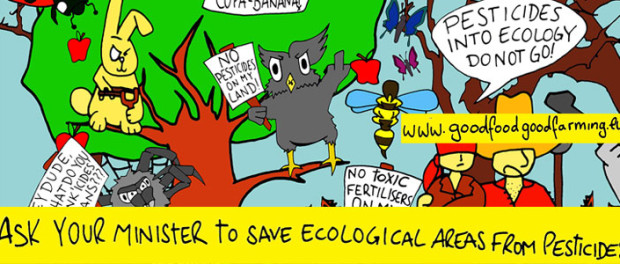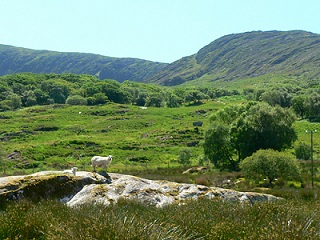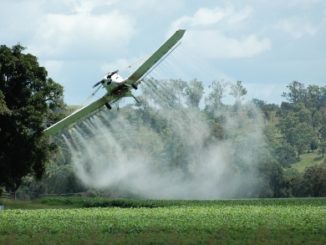As part of CAP simplification, the European Commission is attempting to bring in some changes to greening. However a group of 18 Member States oppose three of the new, clear simple rules which happen to be stricter than the current rules. For these Member States, including – bizarrely – the soon to leave UK, simplification is only acceptable if its to do things like allow pesticides in ecological focus areas, or cause other environmental damage.

Following the Agriculture and Fisheries Council on 10 October 2016, a joint statement was released by 18 member states expressing their “concerns regarding a proposal amending Delegated Regulation (EU) No 639/2014 related to greening”. The member states in question are Croatia, Czech Republic, Denmark, Estonia, Finland, France, Greece, Hungary, Ireland, Latvia, Lithuania, Luxembourg, Poland, Portugal, Romania, Slovenia, Sweden and the United Kingdom.
The European Commission (EC) proposed amendments to simplify greening provisions,. While many have been accepted by member states, some simplifications are being opposed by this group of 18. These are:
- The introduction of ban on using plant protection products on productive areas (land lying fallow, catch crops and nitrogen-fixing crops);
- The extension of minimum fallow period from 6 to 9 months and
- the introduction of obligatory 10-week period for catch crops.
Simplification is fine then, until the simpler rule happens to be stricter. Much of this terrain is familiar to ARC2020 readers from the first time a group of Member States watered down greening.
We worked on a campaign regarding EFAs and pesticides, while we have a dedicated section of this website devoted to the greening process, including EFAs. It is noteworthy that initially there were 23 Member States who spearheaded the move for pesticides into EFAs in 2013: Belgium, Bulgaria, Czech Republic, Denmark, Estonia, Ireland, Spain, France, Croatia, Italy, Cyprus, Latvia, Luxembourg, Hungary, Malta, Austria, Poland, Portugal, Romania, Slovenia, Slovakia, Finland and Sweden.
Below Ireland’s Fintan Kelly, Natural Environment Officer with An Taisce – The National Trust for Ireland – outlines his organisation’s opposition to Ireland’s signing of this letter.
Ireland is one of 18 member states who have moved to block a ban on pesticides in Ecological Focus Areas [1]. The move echoes the efforts in 2013 of the then Minister for Agriculture Simon Coveney to block a ban on pesticides within the EU linked to collapses in bee populations in Europe [2]. Despite the expensive marketing of Irish agriculture as a leader in sustainable food and drink production under Bord Bia’s Origin Green [3] initiative it is clear that Irish government remains as backward as ever when it comes to environmental issues.
Ecological Focus Areas were introduced as part of the ‘Greening’ of the EU’s Common Agricultural Policy (CAP) under the 2013 CAP reform [4]. The need to reduce the environmental impact of agriculture in Europe came with the recognition that the intensification of agriculture, which was driven in the main by EU policies and subsidies had seriously degraded the environment in Europe, driving biodiversity loss and water pollution [5, 6, 7]. The CAP has a budget of 58 billion Euro a year, which accounts for about 40% of the EU’s total budget [8]. Under ‘greening’ it was agreed that 30% of EU countries’ direct payment budgets or 12 billion euro a year would be reserved for certain practices aimed at addressing biodiversity loss, avoiding crop monoculture and securing carbon sequestration [4].
One of the key proposals under greening was the introduction of Ecological Focus Areas (EFA’s) on large arable farms. The scale and intensity of fertiliser and pesticide use in the EUs arable farming sector had resulted in extensive biodiversity loss, water pollution and soil degradation in many parts of Europe [9]. To try to redress this Europe’s farmers were obliged under greening to dedicate a minimum of 5% of their arable spaces to EFAs. These EFA’s range from areas where land is left fallow, to landscape features such as hedgerows, trees, buffer strips, afforested and agro-forestry areas, and measures such as catch crops and winter green cover. The idea was that these areas would be free of intensive land use, free of pesticides and fertilisers so that there would be space for wildlife to live and for essential natural processes such as pollination, soil formation and water purification to take place. It was envisioned that these EFAs would form essential environmental infrastructure from the farm to the landscape level.
Unfortunately the ambition of the EFAs was critically undermined by the successful lobbying of agribusiness lobbyists who convinced agricultural ministers of 23 Member States (including Ireland) to send a letter to the Commission to allow the use of pesticides and fertilisers in EFAs [10]. The Commission caved under pressure and left the banning of pesticides in EFA’s to the discretion of the individual EU states. The Irish government not surprisingly did not ban the use of pesticides and fertilisers in EFA’s leaving us with the incomprehensible situation where billions of taxpayers’ money are being invested in farm level protected areas which can be sprayed with herbicides to kill all plant life and sprayed with pesticides that destroy all insect life.
Environmental groups such as An Taisce have been urging the European Commission to address this abhorrent situation and place an outright ban on inputs in EFA’s so that they can deliver the environmental benefits which EU citizens have paid for. The establishment of EFA’s which are capable of supporting life is the bare minimum that should be expected from a reform which promised a “greener and fairer” CAP. In response the European Commission (EC) has put forward proposals to amend the greening provisions under CAP, including ban on the use of herbicides and pesticides in EFA’s. In response to this progressive move a delegation of 18 countries including Ireland have sent a joint statement to the European Commission ahead of an agriculture Council meeting on Monday calling on the amendment to be dropped [11].
Despite the rhetoric and the expensive Origin Green advertising it is clear that nothing has changed when it comes to the Irish governments attitude to the environment. Successive Irish Agricultural Ministers have cemented our position as one of the most toxic countries in the European Union when it comes to the environment. Ireland has consistently sought to undermine any move which would address the impact of pesticides on wildlife and reduce the environmental impact of arable farming in the EU. To be clear in 2015 €364,500,900.00 will be handed to Irish farmers for greening measures which the Irish government intends to render meaningless [12]. Large arable farmers will be handed taxpayers money based solely on the amount of land they own and thanks to the government they will be given millions of euros in environmental payments for strips of land that can be sprayed with chemicals so that they support no life. This is an insult to us all.
Contact: Fintan Kelly, Natural Environment Officer, An Taisce, The National Trust for Ireland fintan.kelly@antaisce.org
More
NEW: Background document from Commission on CAP Greening review June 2016 (added 14/10/2016)
All ARC2020 articles on CAP (incl greening and simplification)





